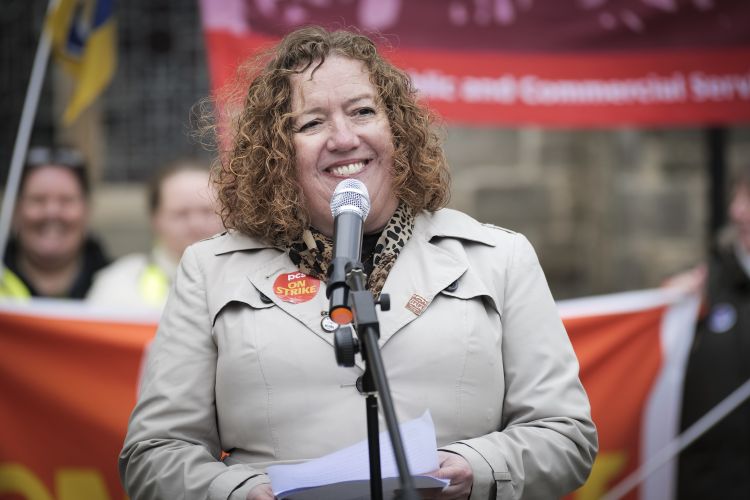40 years after GCHQ: uniting against attacks on workers' rights
Margaret Thatcher had enforced a ban on trade union membership in 1984, claiming that it wasn’t possible for someone to be in a union and be loyal to their country.
But 14 brave workers stood firm and refused to relinquish this fundamental human right – and their defiance cost them their jobs.
What followed was one of the longest and most high-profile disputes in our movement’s history.
After over ten years of campaigning across the trade union movement, the ban was finally lifted in 1997. I’m immensely proud that the GCHQ branch remains an important part of PCS to this day.
Yet four decades on, history is repeating itself with a Tory government hellbent on attacking trade union rights.
This time they are seeking to undermine our members’ democratic right to strike through minimum service levels, which may restrict the right to strike for thousands of our members in the Home Office
Despite what government ministers may say, minimum service levels have nothing to do with preventing disruption or protecting the services that the public relies on.
Just one look at crumbling schools, an overstretched NHS and a broken rail system puts paid to any notion that this government has the best interests of the public at heart.
This legislation is about one thing and one thing only: restricting the right to strike and our members’ ability to fight back against low pay and bad bosses.

And our hardworking members in the Border Force are bracing themselves for what are some of the most severe restrictions of the lot.
At the historic Special Congress on minimum service levels last December, PCS joined unions from across the movement to commit ourselves to campaigning against the vindictive piece of legislation.
However, victory in this campaign means more than words written on a page or spoken at a congress.
These are unprecedented times for our movement and that requires us to be radical, bold and innovative. We need also to discuss and share tactics to beat this legislation.
Just as we showed at GCHQ all those years ago, our strength is in our collective.
That is why trade unionists from all across the UK will march together on 27 January in Cheltenham on the anniversary of the trade union ban at GCHQ.
But we will not only demonstrate to protect the right to strike. We will also pay homage to the annual marches and rallies that took place every January in Cheltenham as part of an inspirational campaign against the union ban led by ordinary trade unionists.
As we prepare for this massive mobilisation in Cheltenham, we must remind ourselves that our movement has won many battles before – and that we can, and will, win many more again.
So, let's join together to defend our members and our class, in solidarity. See you on the 27th.
Stay Updated
Want to hear about our latest news and blogs?
Sign up now to get it straight to your inbox

